
The Complete Guide To Finding Listing Leads Online
Lead generation is everything when it comes to being successful in real estate and we don’t need to tell you that. Ben will walk you through a demonstration for each of the eight niches listed below. You will find tips and tricks for finding qualified leads as well as contact information for the seller.
In the video above, Ben demonstrates the steps to gathering FSBO leads using the follow two methods:
Find the FSBO Listings - using Zillow and other online resources.
The most reliable way to find new FSBOs Leads is using Zillow. Simply search using the For Sale By Owner Option. You may also want to search on other sites like Craigslist. But, most FSBOs will be listed on Zillow. However, some home sellers do not even list their home on Zillow.
Instead, they just throw a sign in the yard and hope it sells. That’s why whenever you drive past a FSBO, you want to make a note of the address and check if it’s on Zillow. If not, then you have a great listing lead.
Research the lead’s mailing address.
You can find your leads’ mailing address on your local Property Appraiser or Tax Assessor’s Website. Each municipality will have a slightly different process and in most cases a quick phone call asking for instructions on how to find the information will get the results you are looking for quickly.
How to automate this process.
If you’d like to automatically get the new FSBO Leads everyday, then sign up for a service like Landvoice, The Redx, or Espresso Agent. Their system will automatically send you the new leads every morning. There is a new, free service on the market, Fizbonanza.com that allows you to subscribe to a search area and will send you all the new FSBO leads in your market each Monday.
Insider Tip.The best FSBO Listing Leads are the out-of-town owners. Because they have a hard time showing the house, I have found that they are the easiest to list.
More FSBO Listing Training
Inside of our Instant Trust FSBO System Course you will find a 60-day follow campaign complete with downloadable templates, hear how fellow Authorify members are using their books with FSBO leads, and tips for dealing with the most common FSBO objections.
Don’t have the FSBO book? Check out this preview of our FSBO Listing Book now!In the video above, Ben demonstrates how to gather expired listing leads using the following three steps:
1. Pull the Expired Listings from your MLS.
Once you’re logged into your MLS, look up the Expireds for that day. Usually, you can find them using the Hotsheet or another Listing Search. (If you can’t find them, then contact your Board or MLS and they’ll help you find the info.)
Note: In some areas, you can try to list the Expireds and Withdrawns. In other areas, contacting Withdrawns is frowned upon and can lead to an Ethics Complaint. If you have any concerns about this, talk to your broker.
2. Make sure the property has not been relisted.
You can do that manually by checking their address in the MLS.
3. Research the lead’s mailing address and phone number.
You can find your leads’ mailing address on your local Property Appraiser or Tax Assessor’s Website. Then, look up their phone numbers using one of the websites below.
More Expired Listing Training
The Expired Rocket: Inside of this course, you will find the marketing package we suggest you send to expired listing leads to help set you apart from the competition. You will find downloadable templates for each piece of this marketing package.
The Expired Campaign: Get our 60-day expired follow-up campaign in this course complete with downloadable letter templates and phone scripts.
Don’t have the Expired book? Check out this preview of our Expired Listing Book now!In the video above Ben demonstrates the steps to finding divorcing homeowner leads in your market.
Note: Depending on your market these records may not be available. In that case, it is best to work with local attorneys to build a divorcing homeowner lead pipeline.
Step 1:
Find the divorce records on your local courthouse’s website. Most Divorce Court Cases are filed with your local Courthouse. You can usually find the information with a Google Search.
Try searching “CountyName County StateName Divorce Filing Search.”
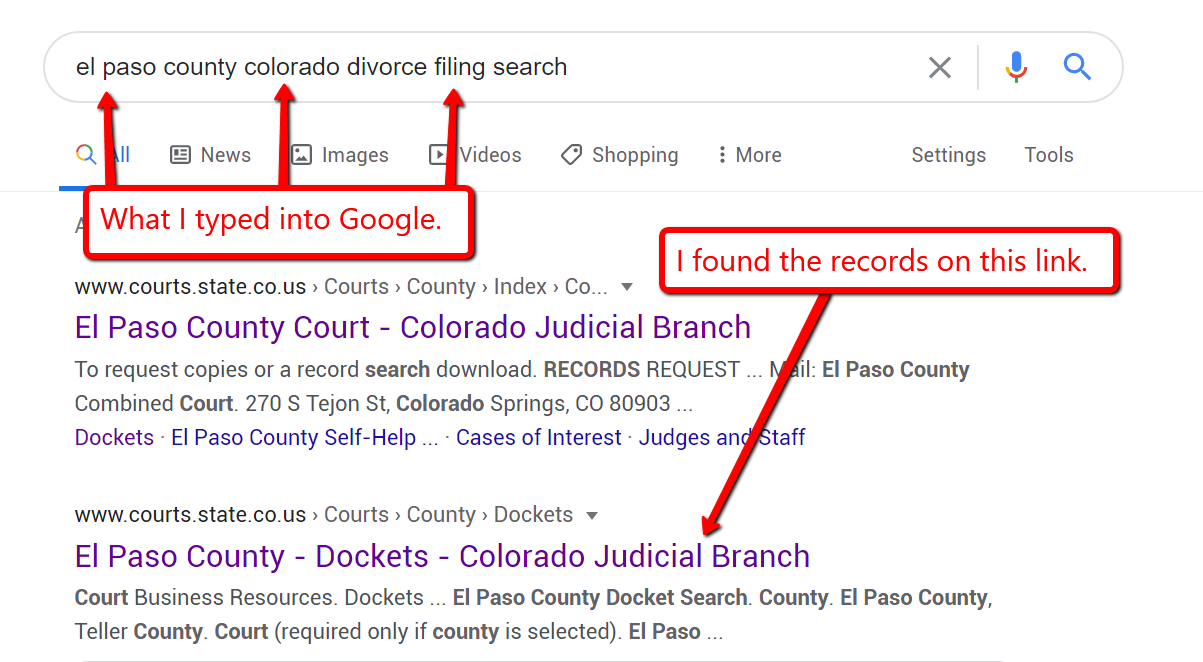
Try and search for the records on their website. Some of these sites are a little bit hard to use, and there is a good chance you will need to call their office for help.
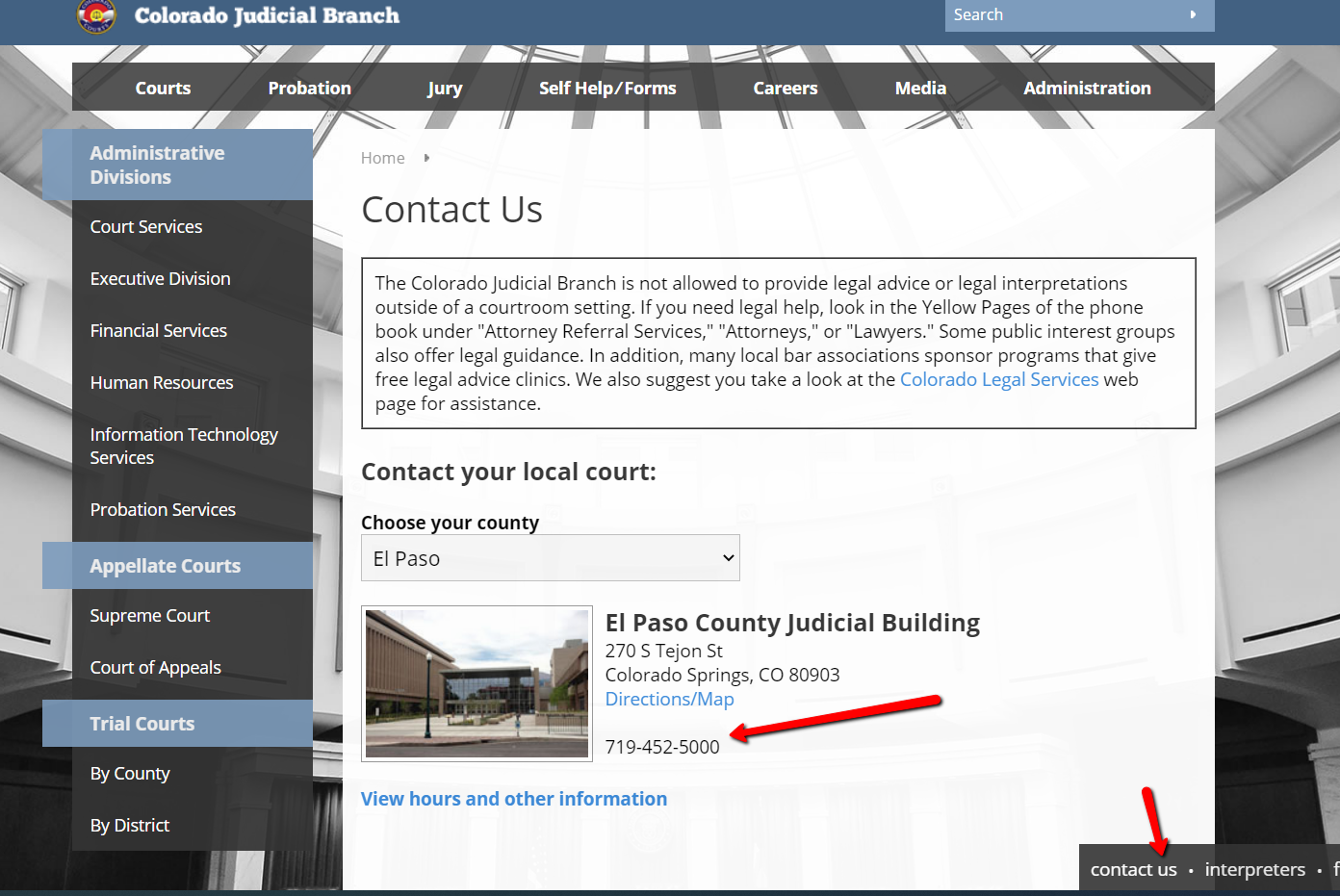
It will take some persistence, but once you figure it out, you’ll be able to find the court cases.
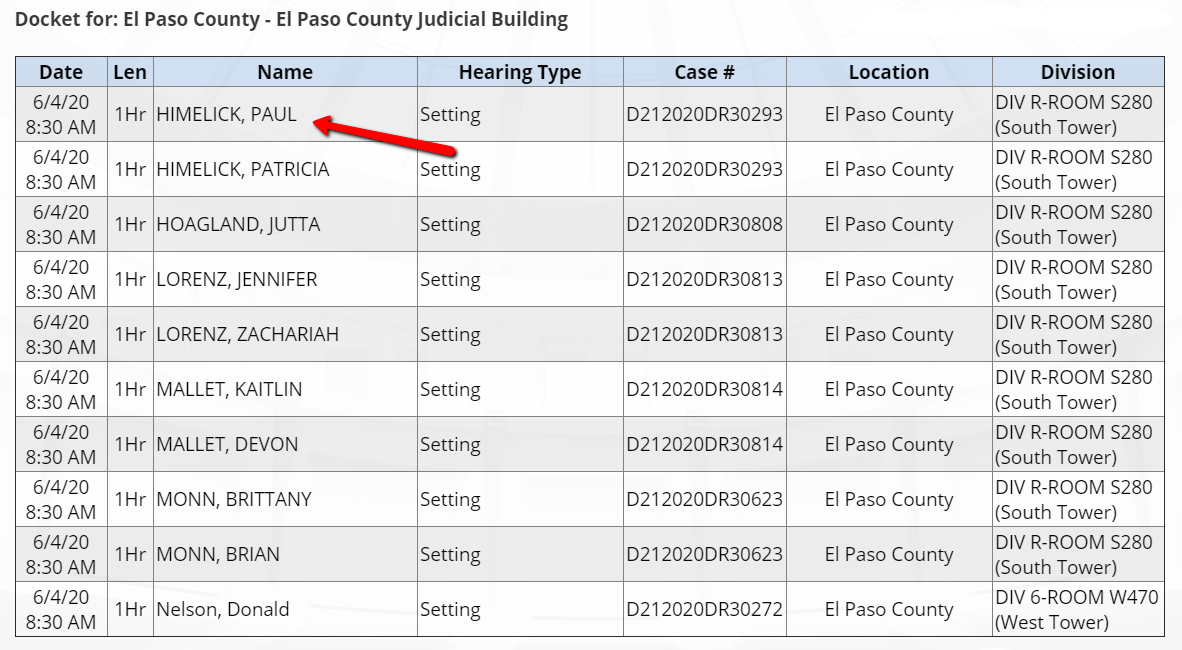
Step 2:
Check if the divorcing parties own real estate. To do that, cross reference their name with your local property records. You can usually find the property records on your county’s website. It’s usually called the Property Appraiser or Tax Assessor.
Just search for “CountyName County StateName Property Records Search.”
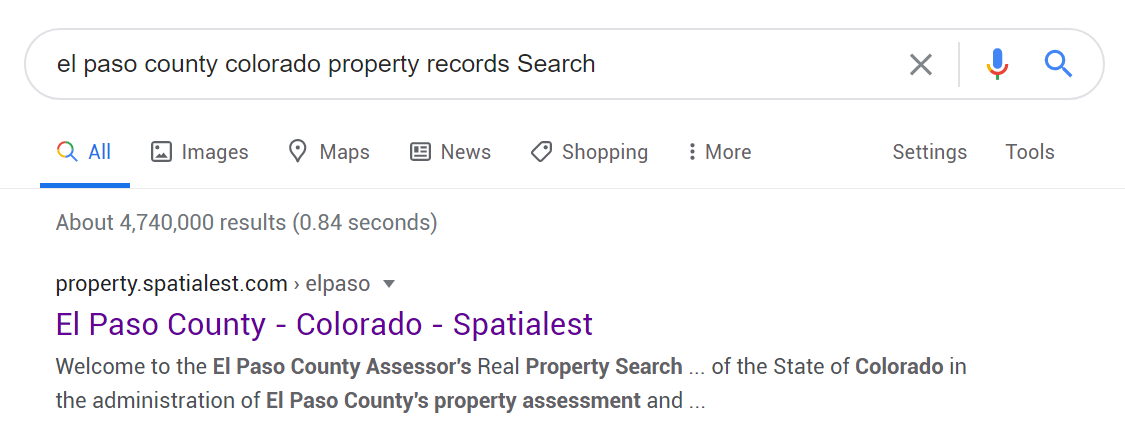
Now, search for the people’s names on the Property Records. In this case, I’m going to look up the Divorce Name from above.

And we have a winner. The Himelick’s own real estate:
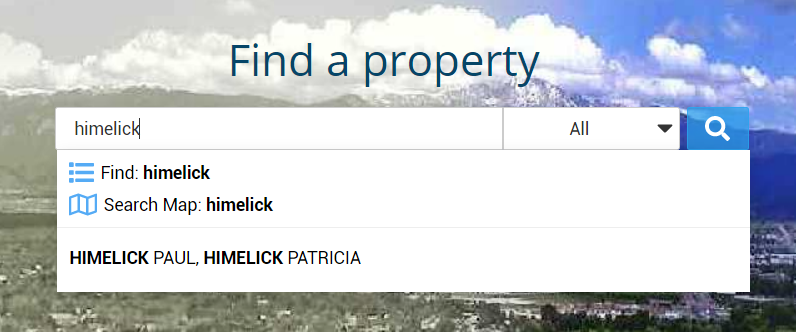
Let’s pull up their property:
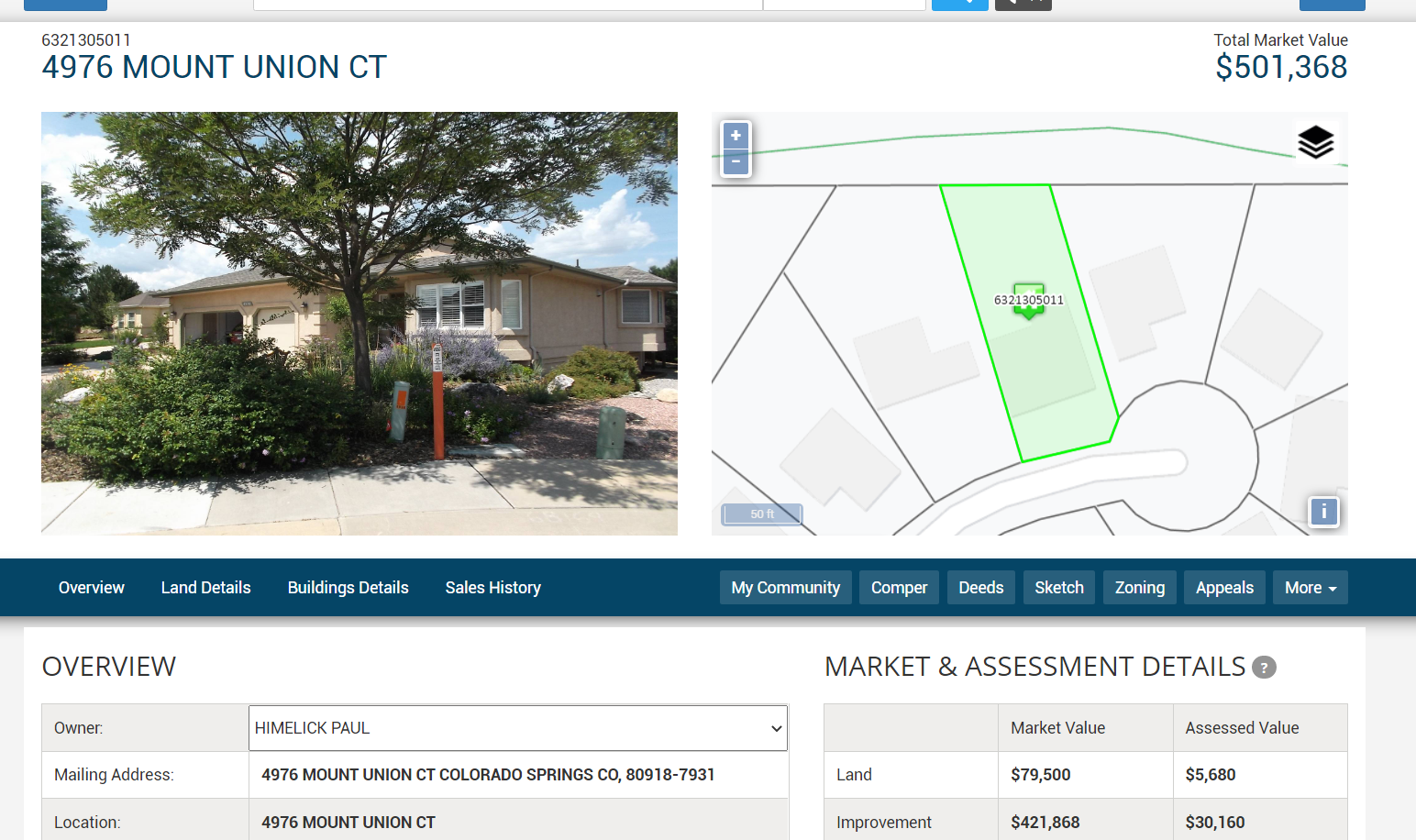
In the above video Ben demonstrates how you can find inherited home listings, qualify them and find the best contact person.
Getting Started:
When searching for inherited home leads it is important to remember that beyond just locating the listing we want to qualify them in order to make sure we are on the right path.
Find the Probate Court Cases on your local courthouse’s website.
First, you’ll want to find the Probate Court Cases on your local courthouse’s website. Most Court Cases are filed with your local Courthouse. You can usually find the information with a Google Search.
Try searching “CountyName County StateName Probate Case Search.”
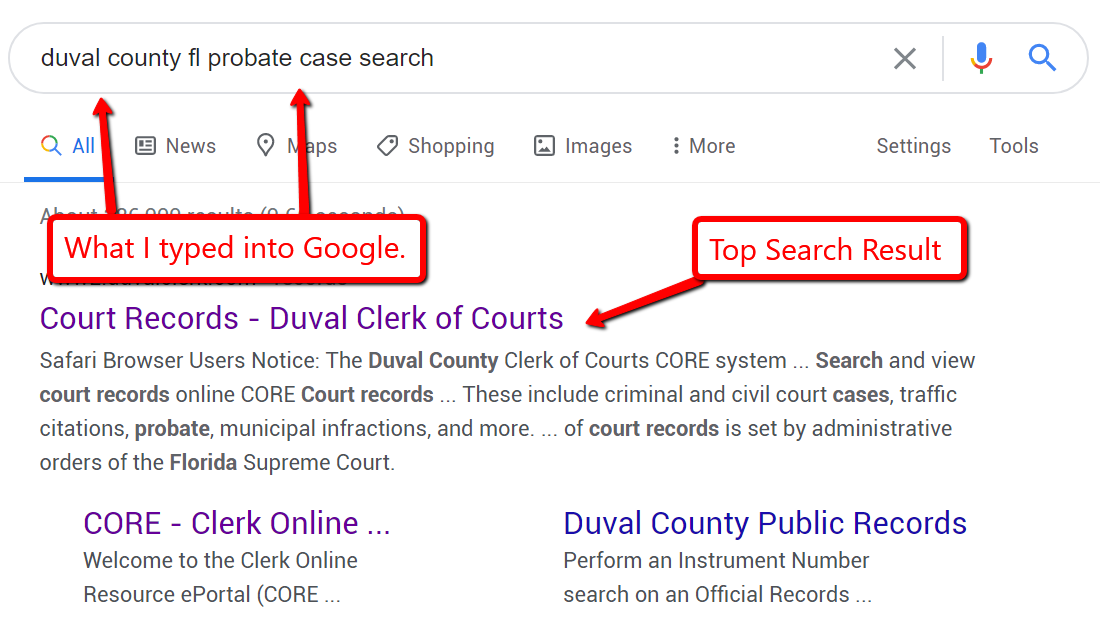
Once you find the site, try and find the records on it. Some of these sites are a little bit hard to use, and there is a good chance you will need to call their office for help.
It will take some persistence, but once you figure it out, you’ll be able to find the court cases. If you are not able to find the information on the website, contact the courthouse and have someone help you.
I recommend calling several times until you find a clerk that will help you. When I was new to the business, some clerks told me that I couldn’t access certain courthouse records. I didn’t believe them, called back, talked to another clerk, and they helped me find the information.
Anyways… I managed to find the Probate Court Cases in Duval County.


About 4,450 were filed in 2019.
B. Once you find a lead, you’ll want to do the following to qualify that lead:
I checked the top probate case and found that the owner did own real estate, and it doesn’t appear she has a spouse on the title.


This lead looks promising! So, let’s continue on to Step #2 and I’ll show you how to find the decision maker and their contact information.
If you absolutely cannot find the Probate Court Records in your area, there are other options for you. I lay out several of them in the last module of this training.
Step 2: Find the best contact person and get their contact information.
You want to find the decision maker who has the authority to sell the house. Usually that’s a Personal Representative, the Executor of the Estate, or an heir.
There are several different ways to do that:
Let’s go through these options one at a time.
How to find the Best Contact Person - using the information in the Probate Court Case Records.
I’ll use this estate as an example. I found the Probate Case using the instructions in Step #1 above.

I clicked and opened the case and found the following information.
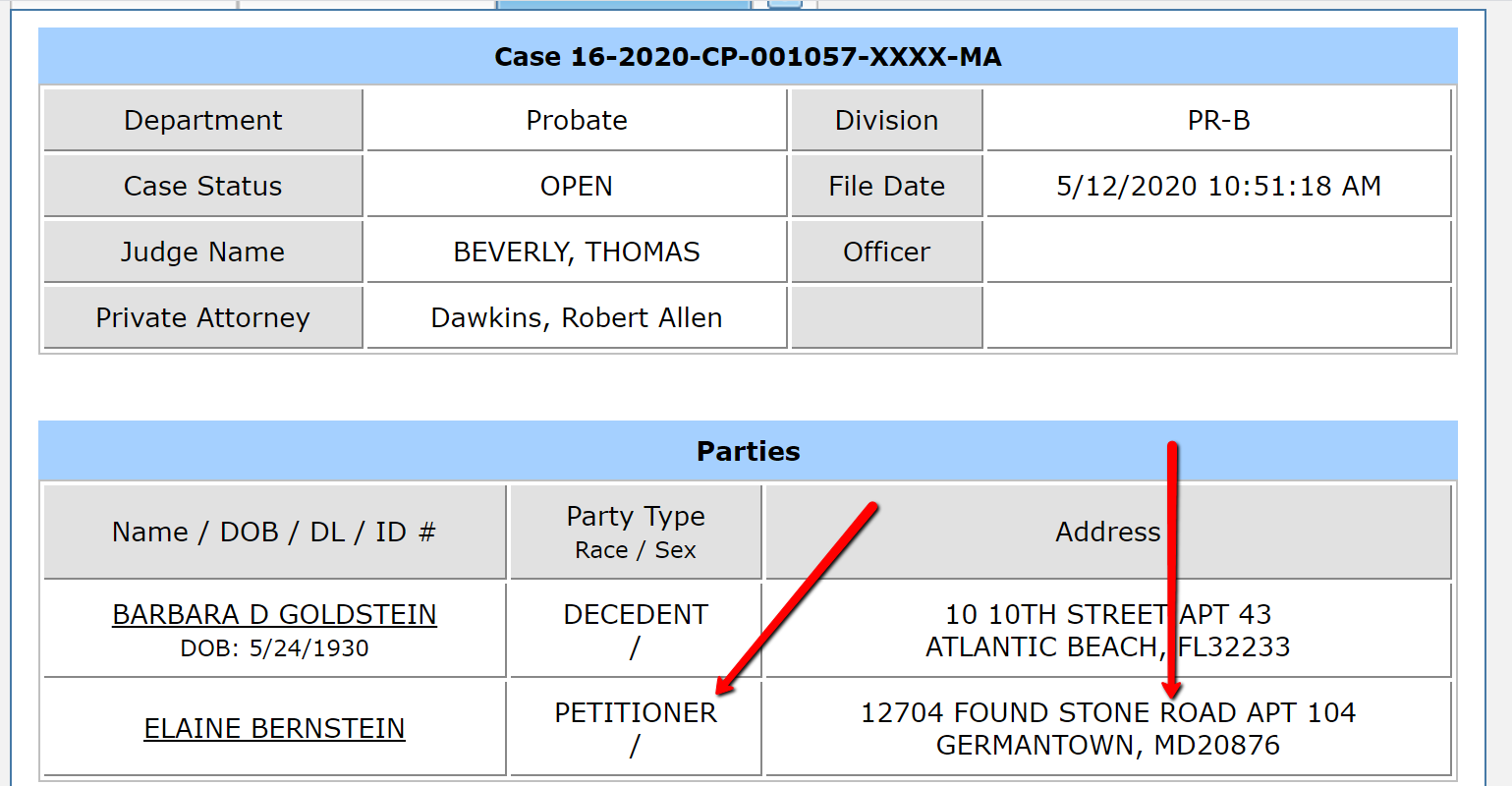
Usually, the Petitioner is the Personal Representative, but I was able to confirm that on this case because I went through the court filings.
I found a Petition for Summary Administration on the Court Docket.

I was able to access the document and found this paragraph on it:
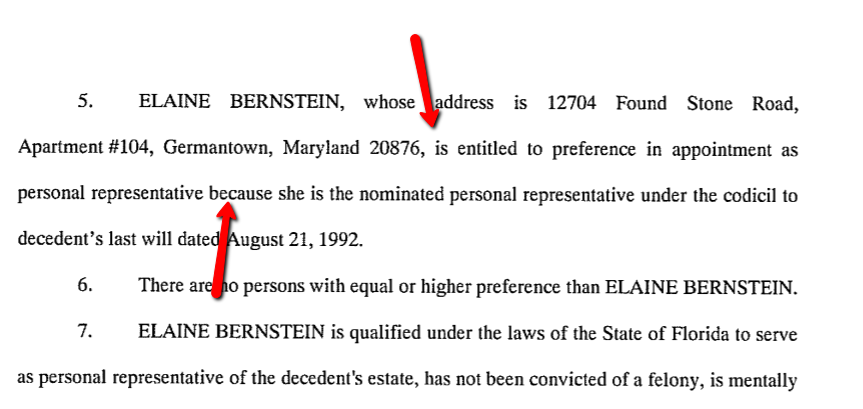
So now that I know I have the right person, how do I find their contact information? I’ll show you how in Step #3.
How to find the Best Contact Person — using the information from the Obituary.
I’ll use this property as an example.

I searched Google and found her obituary. See below.
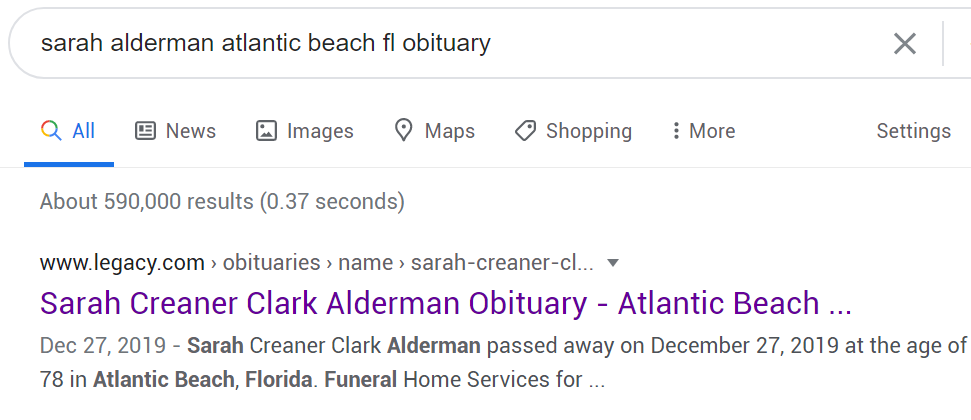
In the obituary, you’ll want to look for the part that says “survived by” or something like that. Here’s that part of Sarah’s Obituary.

Now that I have their names, I need to find them. You have to be a detective and dig up the information!
First, try to see if their heirs live in the area. You can search local property records or the White Pages or simply google their name and the city. For example, “Susan Staley Jacksonville, FL.”
I found a “Susan Staley” in Orange Park, which is about 40 minutes away, but I couldn’t find any tangible information on her, such as property records, address, or even a phone number.
So I searched for the next daughter and found her. See below.
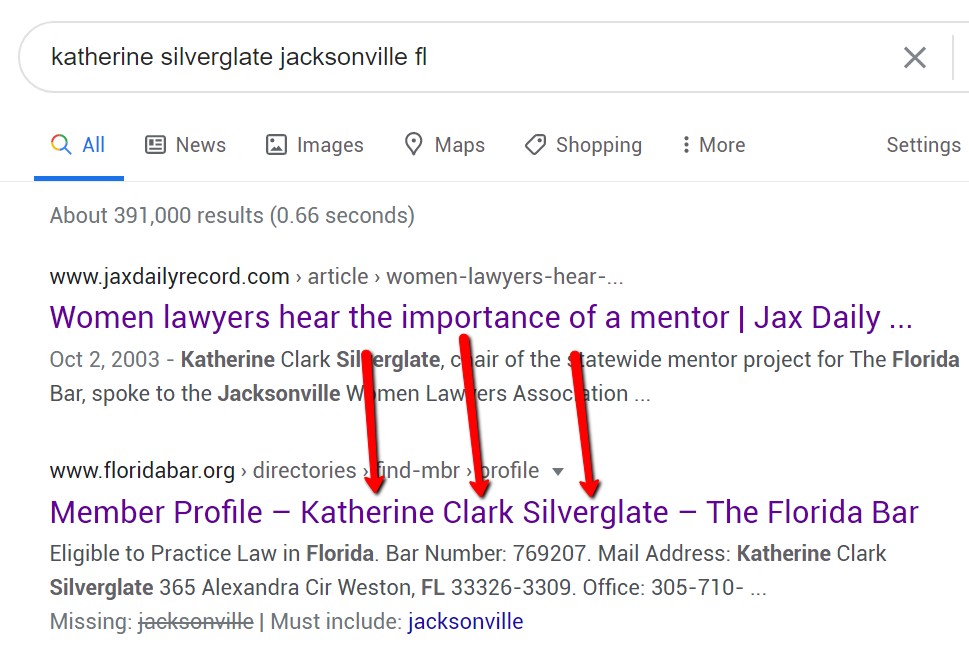
Notice that she matches all 3 names in the Obituary below?
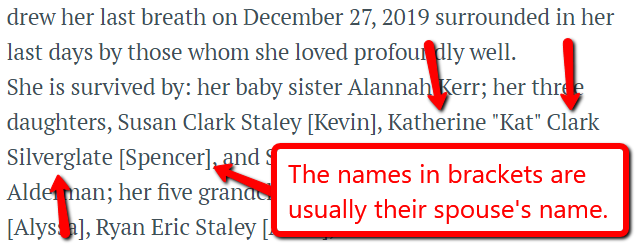
And when I searched for “Katherine and Spencer Silverglate,” this is what I found:
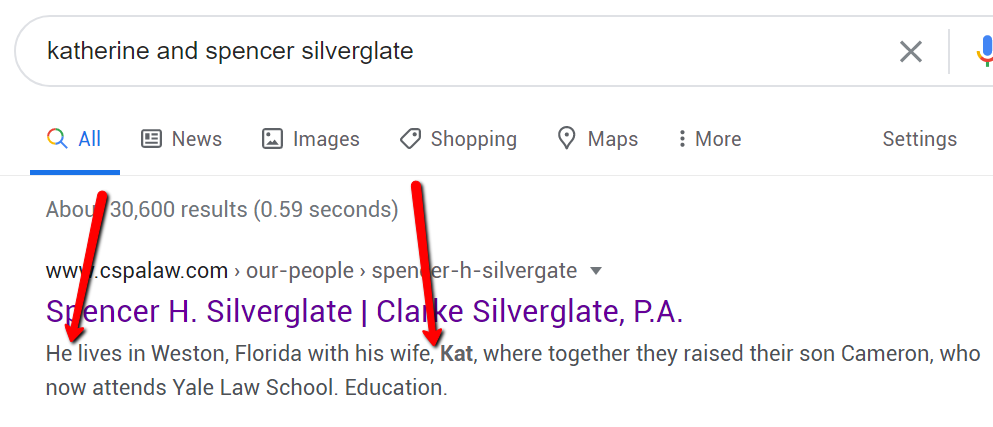
So now that I know I have the right person, how do I find their contact information? I’ll show you how in Step #3. If you’re ready, go there now.
If you can’t find the person using one of those methods, mail your book to the deceased at their address. One of the heirs is bound to stop by and check the mail.
If you only want to mail the best leads, then drive past the homes and see if anyone is living in them. If a home looks empty, then it’s worth sending them your book.
I found 2 Inherited Homes about a mile away from our office, so I drove past them this afternoon. One of them was clearly occupied.
But the other had those telltale signs of being prepped to go on the market. Look at the picture below.
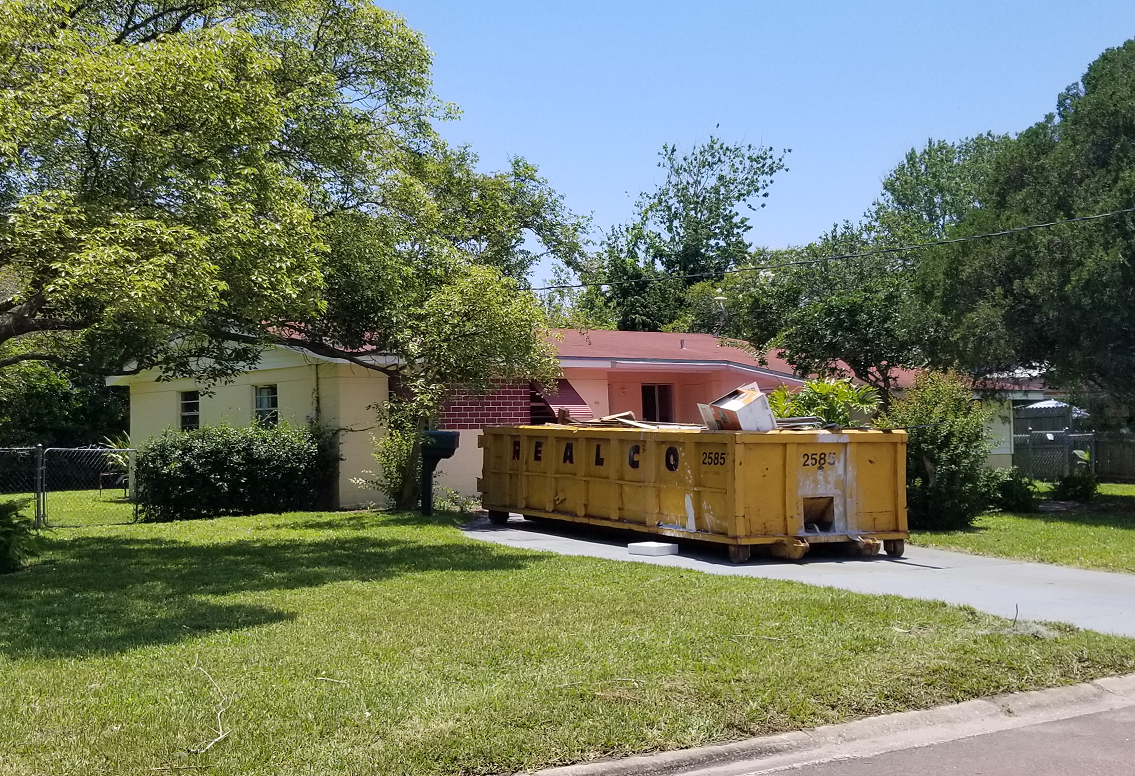
I would definitely send them my book and maybe even leave a note on the door!
More Training:
The Inherited Homeowners Course: Inside of this course we go deeper into what to do after you have located an inherited listing lead. You’ll receive letter templates and phone scripts to follow-up with these leads as well as tips for converting more of these leads into listings.
Don’t have the Inherited Homeowner Book? Check out a preview of the Inherited Listing book now!In the above video Ben breaks down the various vacant lead sources and demonstrates how to locate them.
You’ll notice that the quality of the vacant leads varies depending on the source. Here are some of the different lead sources, ranked according to their likelihood of selling.
Highest quality leads, most likely to sell:
Evictions. I’m talking about single family or condo evictions where the property owner doesn’t own more than 3 properties. (Apartment evictions don’t count.)
You can find eviction filings at your local courthouse. Call or visit your local courthouse for more information.
High-End Vacant Lots or Vacant Land — where the owner lives out of town. The best leads are people who have owned the property for years and live out of town.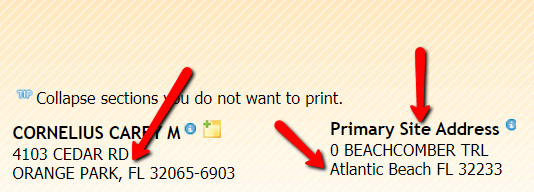
A lot of them simply hold onto the property for years and just never get around to selling it. You’d be surprised how many are open to selling once you contact them.
Get these leads from one of the paid data providers or your local Property Appraiser or Tax Assessor. Contact them for more information on how to get the lists.
Absentee Owners with other signs that the owner may be interested in selling. Here are some of those signs: long grass, unkept yards, broken windows, delinquent property taxes, or anytime the home simply looks vacant.
If you get a list of Absentee Owners from one of the lead providers above, you can find the ones that are most likely to sell by driving past the homes or checking their tax records on the Tax Collector’s Website.
Medium quality leads, likely to sell:
Absentee Owners who live out of town. Some of the lead providers allow you to buy a list of only this type of lead.
Absentee Owners where the owners are over 65 years old. In the National Association of Realtors 2019 Profile of Home Buyers and Sellers, the largest percentage of sellers (24%) are between the ages of 65 and 74. So, when you combine an Absentee Property with an owner that’s 65+, they’re much more likely to want to sell.
You can often find someone’s age just by Googling their name and location. Look at the screenshot below:
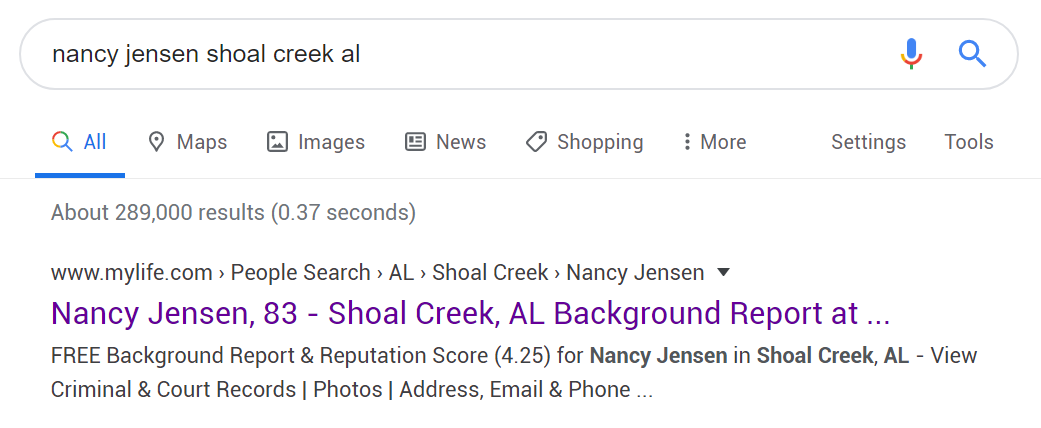
An Insider Tip: You can research the age of all the property owners using a Demographic Appender like Data Finder. They will append Phone Numbers for 4 cents per matched record and the person’s age for 4 cents per matched record.
They have a minimum order of $100. If you want a ton of great vacant leads, then buy a list of 5,000 from Melissa Data, Append their info using DataFinder, and then start working those leads.
High-End Vacant Lots or Vacant Land - where the owner lives in the area. They aren’t as likely to sell as the owners who moved away. But a lot of them do want to sell.
I’ve listed a lot of properties like this simply because my contact was the one thing that “pushed them off the fence” and got them to take action.
Absentee Owner Tear-Down Leads. This is where the seller will be more likely to sell because they can get a lot more for their property than what they’re earning in rent.
A perfect example is this property just down the road from our office:
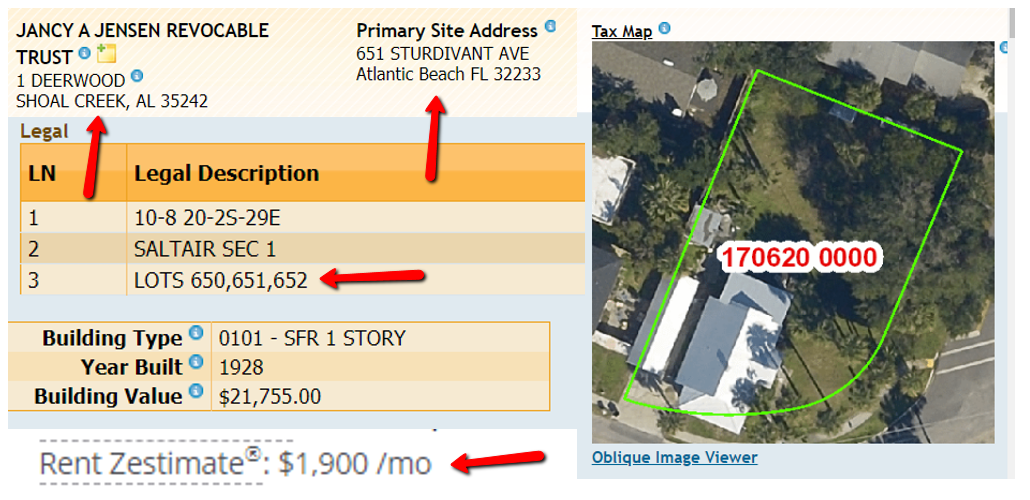
I estimate that each lot is worth about $300,000. So, they could probably sell it for $900,000. And, even if the owner was in town, $900,000 cash is much more attractive than the $1,900 a month they’d get in rent.
For Rent by Owner - where the owner lives out of town. Rentals are so tough. And very few property owners really understand the risks associated with being a landlord, much less how to deal with those risks.
When you show them the risks, and the fact that you can help them get rid of their properties and put money in their pockets, they often decide to sell instead.
You can find rentals on Zillow, Craigslist, and the Facebook Marketplace.
For Rent by Owner - where they’ve been for rent for longer than 30 days. Most rentals rent out pretty fast. But the ones that are on the market for longer than 30 days are highly likely to want to sell.
You can find rentals that have been on the market for a while by sorting for “Newest” on Zillow and scrolling to the oldest rentals. See below:
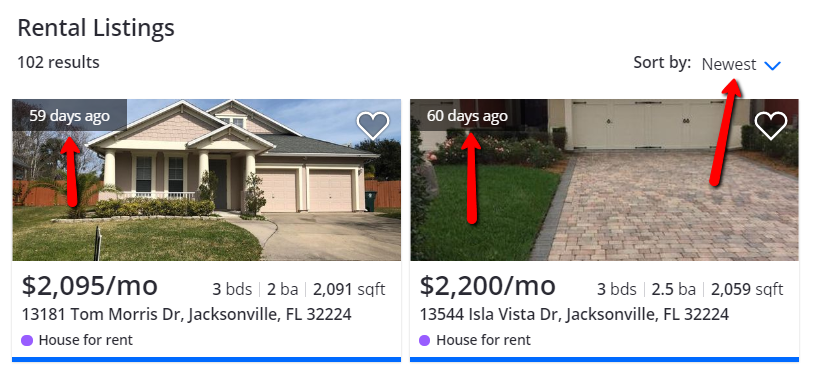
Below is a rental that’s been on the market for over 60 days. It’s worth about $350,000 and would be a great listing lead.
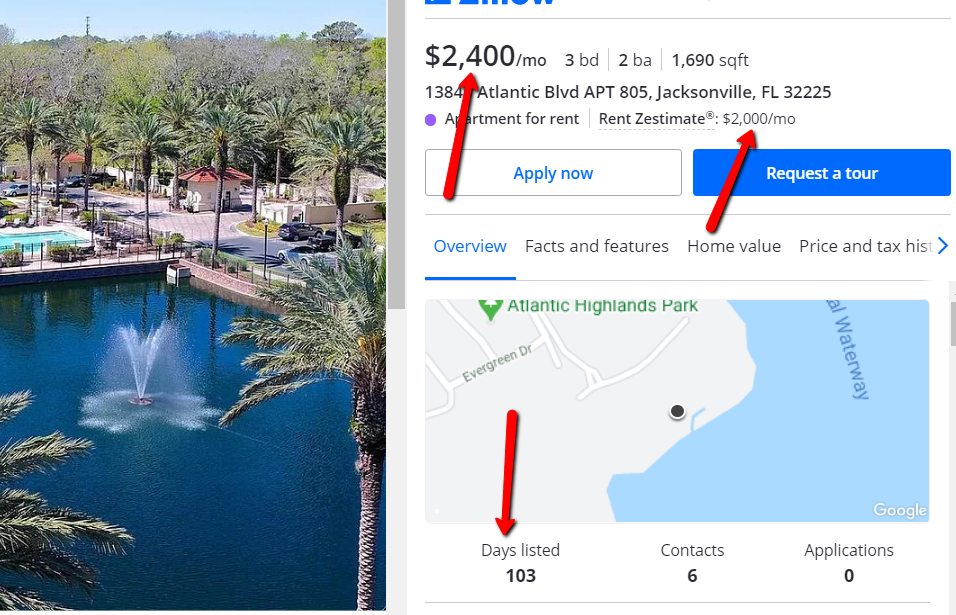
When you show them the risks, and the fact that you can help them get rid of their properties, and put money in their pocket, they often decide to sell it instead.
Lower quality, less likely to sell leads.
Yes, these people do sell. But they’re not as likely to sell as some of the people I’ve talked about above.
I wouldn’t send these leads a book, but they are worth a phone call to offer your Digital Book, a free market analysis, and see if they’re interested in selling.
Regular absentee Owners that live in the area and are less than 65 years old.
For Rent by Owner where the owner lives in town.
All Tear-Down Leads. Yes, I know this training is about Vacant Homes. But, you’re going to come across lots of Tear Down Leads. So, you might as well work all of them.
I think it’s worth contacting the Owner Occupants! Some of these properties are such great listings that you don’t need any other selling motivation indicators!
But, if you want to sort out the best leads, look for some of these selling motivation indicators:
More Training:
The Vacant Campaign Course: Inside of this course we go deeper into what to do after you have located a vacant listing lead. You will receive templates to build the perfect Instant Trust Package as well as script and letter templates for a 60-day follow-up campaign.
Don’t have the Vacant Book? Check out a preview of the Vacant Listings book now!In the video above, Ben demonstrates how to gather Delinquent Property Tax Listing Leads using the following three steps:
1) Find the Delinquent Tax Information at your local Tax Collector’s Office.
In most areas, the local Tax Collector is put in charge of collecting the property taxes that are due from the public.
Google “County Name Tax Collector” to this information. Every year, their office will publish a list of people who are behind on their property taxes. You can often get a list of everyone who is behind on their property taxes right on their website. If that doesn’t work, then you can visit their office in person to get the list.
If you can’t get the information on their website, then call their office. They have Clerks that can show you exactly how to find the records and walk you thru the research process. I’ve found most of the clerks are helpful.
An insider tip. If one clerk is difficult, then call back and talk to someone else. I have had one clerk tell me “That information is not available. It’s not Public Record.” I knew they were wrong. So, I called back, talked to another clerk, and got the information I needed.2) Once you have the Delinquent Tax Leads, you’ll want to find the property information.
You can usually find that in the property Database Records held by the Property Appraiser or Tax Assessor's Office.
In most cases, you can find the property record by searching using the Tax Parcel Number, Property Owner’s Name, or Legal Description. Once you find the property, make sure that it is the correct property.
You can verify this by cross referencing the Tax Parcel Number or Property Address with the property records. If that doesn’t work, then try cross referencing the legal description with the property records. Once you’re confident you have the correct property, then move onto the next step.
3) Research the lead’s mailing address and phone number.
You can find your leads’ mailing address on your local Property Appraiser or Tax Assessor’s Website. Then, look up their phone numbers using one of the websites below.
More Training:
The Instant Trust Package: Once you have the contact information for a lead you need to send them your book along with a marketing package to help separate you from the competition. Inside this course you will find all of the downloadable templates to build your Instant Trust Package. Swap out the generic sellers cover letter with this one designed specifically for delinquent property tax owners.
Seller Lead Follow-Up Campaign Get our 60-day seller lead follow-up campaign inside of this course complete with downloadable letter templates and phone scripts.
Don’t have the Delinquent Property Taxes Book? Check out a preview of the book now!Most Pre-Foreclosure & Short Sale Leads are one and the same. Yes, not all short sales have a foreclosure filing. But, there aren’t that many good ways to find short sale leads, until a foreclosure notice has been filed.
So, if you’re looking for Short Sale Listing Leads, then find the Pre-Foreclosure Leads in your area. Some will have equity and not require a short sale. And, the ones that are upside down are the short sale leads you want.
In the video above, Ben demonstrates how to find pre-foreclosure and short sale leads using the steps below.
1) Find the Foreclosure Filings at your local county courthouse.
In most places, a document is filed in the Public Records. This document is either called a Lis Pendens or a Notice of Default. Most of these documents will have the property owner’s name and the property legal description.
You can usually find the website to research this by Googling “County Name Public Records”, “County Name Official Records”, or “County Name Courthouse.” Sometimes Google will lead you to the exact spot to get the information.
Note. If you can’t find the information on the Courthouse Website, then call the courthouse. They have Clerks that can show you exactly how to find the records and walk you through the research process. I’ve found most of the clerks are helpful.An insider tip. If one clerk is difficult, then call back and talk to someone else. I have had one clerk tell me “That information is not available. It’s not Public Record.” I knew they were wrong. So, I called back, talked to another clerk, and got the information I needed.
2) Once you have the information from the Foreclosure Filing, you’ll want to find the property information. You can usually find that in the property Database Records held by the Property Appraiser or Tax Assessor's Office.
In most cases, you can find the property record by searching using the owner’s name. If that doesn’t work, then try using the legal description. Just be warned that it can be difficult.
Once you find the property, make sure the legal description on the foreclosure filing matches the legal description on the property records. Once you’re confident you have the correct property, then move onto the next step.
3) Research the lead’s mailing address and phone number.
You can find your leads’ mailing address on your local Property Appraiser or Tax Assessor’s Website. Then, look up their phone numbers using one of the websites below.
More Training:
The Instant Trust Package: Once you have the contact information for a lead, you need to send them your book along with a marketing package to help separate you from the competition. Inside this course you will find all of the downloadable templates to build your Instant Trust Package. Swap out the generic sellers cover letter with this one designed specifically for pre-foreclosure leads.
Seller Lead Follow-Up Campaign Get our 60-day seller lead follow-up campaign inside of this course complete with downloadable letter templates and phone scripts.In the video above, Ben demonstrates how to gather eviction listing leads using the following three steps:
1) Find the Eviction Filings at your local county courthouse.
In most places, an eviction is handled as a Court Case. And, these Court Cases are public information. You may not be able to access every document, but you can get the general information.
You’ll usually find the Court Records on your local Courthouse Website. You can usually find this information by Googling “County Name Court Records Search.” Sometimes Google will lead you to the exact spot to get the information. If that doesn’t work, then search for “County Name Courthouse Court Records Search.”
Note. If you can’t find the information on the Courthouse Website, then call the courthouse. They have Clerks that can show you exactly how to find the records and walk you thru the research process. I’ve found most of the clerks are helpful.An insider tip. If one clerk is difficult, then call back and talk to someone else. I have had one clerk tell me “That information is not available. It’s not Public Record.” I knew they were wrong. So, I called back, talked to another clerk, and got the information I needed.
2) Once you have the information from the Eviction Filing, you’ll want to find the property information. You can usually find that in the property Database Records held by the Property Appraiser or Tax Assessor's Office.
In most cases, you can find the property record by searching using the Plaintiff’s Name. (The “Plaintiff” is the person filing the Eviction Case to evict the tenant. Once you find the property, make sure that it is the correct person.
You can verify this by cross referencing the Plaintiff’s Address with the property records. If that doesn’t work, then try cross referencing the legal description with the property records. Once you’re confident you have the correct property, then move onto the next step.
Focus on the small time landlords. If a landlord owns a quadraplex or more than 4 individual units, then they are probably comfortable with an eviction from time to time.
3) Research the lead’s mailing address and phone number.
You can find your leads’ mailing address on your local Property Appraiser or Tax Assessor’s Website. Then, look up their phone numbers using one of the websites below.
More Training:
The Instant Trust Package: Once you have the contact information for a lead, you need to send them your book along with a marketing package to help separate you from the competition. Inside this course you will find all of the downloadable templates to build your Instant Trust Package. Swap out the generic sellers cover letter with this one designed specifically for pre-foreclosure leads.
Seller Lead Follow-Up Campaign Get our 60-day seller lead follow-up campaign inside of this course complete with downloadable letter templates and phone scripts.
